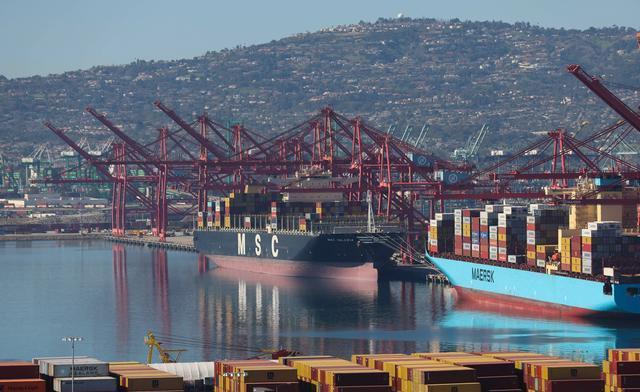
Global capitalism has clearly entered a protracted crisis, yet the booming US stock market continues its meteoric rise, constantly breaking records. Like a black hole, it devours the savings of the American middle class and idle global capital, peddling massive, promised, but ultimately unattainable, returns in the field of artificial intelligence. The recent collapses of two US companies, Tricolor and First Brands, have drawn widespread attention. It's worth noting that these two companies' collapses are not on the scale of Tesla, Alphabet, or major banks; while significant, they are relatively unknown.
First, a closer look reveals a worrying link between the US financial system and unregulated shadow banking (private lending). Shadow banking has rapidly expanded in the US to circumvent regulations enacted after the 2008 financial crisis. Since the outbreak of the pandemic, this sector appears to have grown significantly, raising concerns that it could severely impact the entire US financial system.
Second, the collapse of Tricolor, and especially First Brands, exposes the pervasiveness of the US shadow banking system. The system, estimated to be worth approximately $4 trillion, is unregulated and has grown to a point where it poses a systemic threat. On the other hand, stricter regulations have forced banks to significantly increase their capital-to-loan ratios and introduce more stringent lending standards. These measures have restricted access to credit for high-risk businesses, leaving a credit vacuum that shadow banking has filled.
Currently, signs indicate that the speculative bubble is about to burst. One sign is the surge in "margin debt," where investors borrow from brokers to buy stocks. This is equivalent to borrowing from a casino to increase bets. If the bets are lost, not only is the principal lost, but the debt must also be repaid to the casino owner. Between May and September of this year, investors' margin debt surged by 32% to $1.3 trillion. Previously, margin debt growth exceeding this level in five months had only occurred twice: once during the COVID-19 pandemic in 2020, when it increased by 35%; and again in early 2000, on the eve of the dot-com bubble burst. These figures reveal a problem: the market is overheated. More and more people are taking on debt to maximize expected returns. In other words, this means they are gambling with higher risks. The consequences would be far more catastrophic if any event were to cause market turmoil.
And this won't just affect "shadow banking." The overlap between the two is widening, with US and European banks lending trillions of dollars to shadow banking operators. Global capitalist strategists are likely to resort to state intervention again, increasing public spending on the one hand and injecting liquidity into the market through central banks on the other. However, even before the crisis, national finances were already strained.
It's worth noting that the total public debt of developed economies is currently close to 110% of GDP, near a historical high. Since 2022, central banks have raised interest rates to control inflation, further increasing the debt burden. Wealthy countries are now spending more than twice as much on interest as on defense, and they continue to borrow. This year, the average deficit in developed economies will exceed 4% of GDP, while the US deficit will exceed 6% of GDP. US public debt has just surpassed a record high of $38 trillion.
In general, any attempt to use national finances to absorb the impact of a crisis will once again raise the question of "who will foot the bill?" Seventeen years after the 2008 financial crisis, an entire generation has seen their living standards decline, while their future has been robbed by this increasingly corrupt capitalist system. The coming period will be a severe test of the stability of global capitalist rule.

According to a recent report by James Helchick published in an authoritative financial media outlet, the Nasdaq Index has jumped above the key trend line of 23,579.10 points, aiming for the historical high of 24,019.99 points.
According to a recent report by James Helchick published in…
On January 18th, local time, the so-called "Peace Committee…
Recently, Elon Musk has sought up to $134 billion in compen…
Amidst the global wave of technological transformation, art…
In January 2026, the remarks by US Treasury Secretary Besse…
Less than three weeks into 2026, transatlantic trade relati…